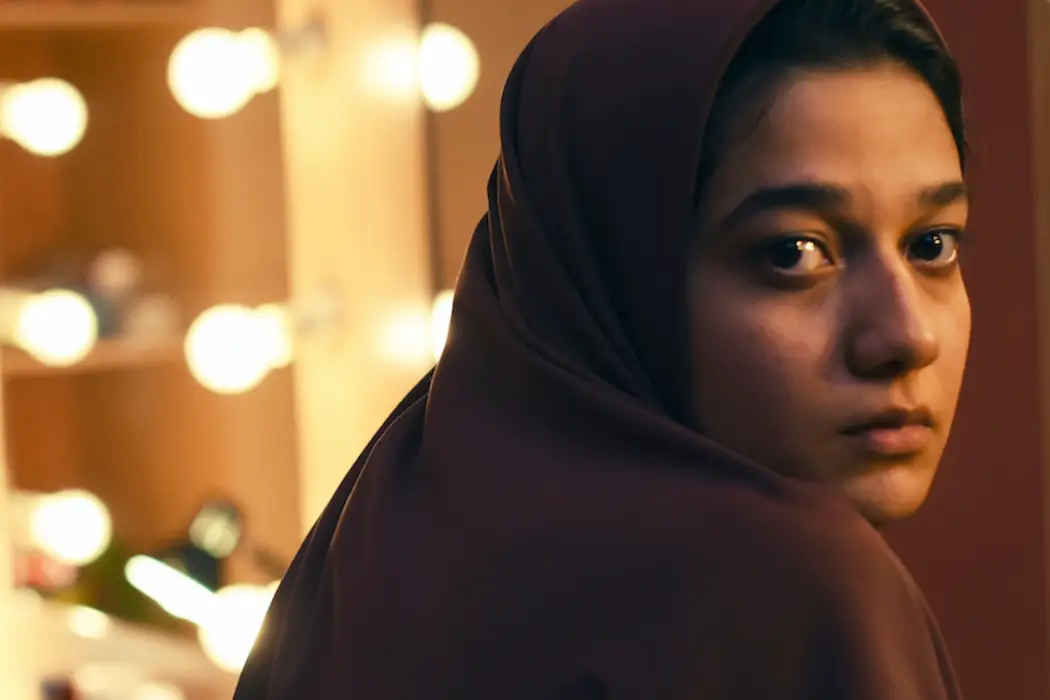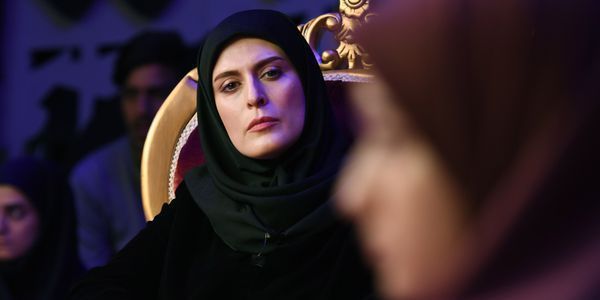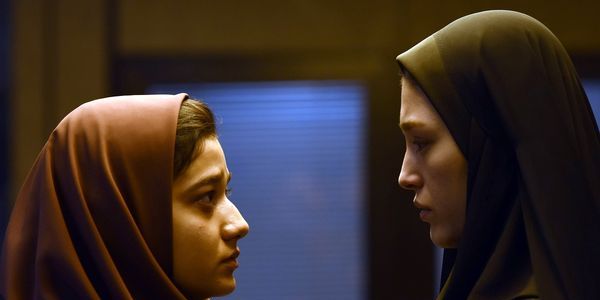Berlinale 2020: YALDA, A NIGHT FOR FORGIVENESS

Wilson is a cinema enthusiast based out of Toronto, Canada.…
America’s obsession with reality television is something that has really been normalized within popular culture. From the launch of Survivor in the early 2000s (which is surprisingly still holding strong) to the Kardashian family’s current latch on popular culture, Americans are certainly no strangers to this format of entertainment. But what about a reality television show where someone convicted of murder asks for forgiveness, and the acquittal of said crime, from the victim’s family?
This is essentially the premise of Massoud Bakhshi’s Yalda, A Night for Forgiveness, which is based off of actual televised events in Iran. The story follows Maryam (Sadaf Asgari), who has already been convicted of murdering her husband accidentally in court. As a last measure of potentially reversing the decision, she is put on a reality television show where the victim’s daughter, Mona (Behnaz Jafari) has the option of granting her forgiveness for the murder. This all happens on the eve of Yalda, the Iranian winter solstice celebration. As shocking a plot as this may seem, the narrative is inspired by a process that actually exists in Iran.
Social commentary by way of cinematography
The most striking thing about Yalda, A Night for Forgiveness is its visual palette, which shines through with Julian Atanassov’s crisp and thoughtful cinematography. As expected, he brings a certain level of sharpness to the reality television set, but also adapts this visual tone for the rest of the film. And in doing so, he’s able to blend the two worlds together and make audiences question what the actual ‘reality’ is.

This plays into Bakhshi’s main thesis for the film, which criticizes the ridiculous nature of casting judgment on a criminal case on live television. Doing this essentially fosters a culture where any privacy to one’s personal reality is ripped apart, and the film’s cinematography annunciates this point with a perfect pitch. It’s one of the most remarkable ways of providing social commentary through visual cinema, and happens in a seamless manner right before your eyes.
Creating tension through dramatic characterizations
Bakhshi also maintains a constant level of tension throughout Yalda, A Night for Forgiveness, and does so by keeping the film’s focus on each character’s tenuous mental state. With the exception of some of the reality show’s introductory comments on the case, the film is essentially void of any expository dialogue. We simply bounce from one character’s externalized internal dialogue to the next, and this serves to drive the film’s emotional narrative forward. In a sense, it almost feels like watching a stage play, with cinema diverting away from the stagnant nature of theatre work.

Asgari and Jafari are both excellent and do a bulk of the heavy lifting there, but so do the supporting cast. Fereshteh Sadr Orafaee delivers a fine performance as Maryam’s mother, creating a character that is understandably flawed and manipulative, but not completely vilified either. Babak Karimi, who many will recognize from his work on Asghar Farhadi’s films, is both stern and empathetic as the producer of the reality show. With no background score and a restricted location shoot, the atmospheric tension is created solely through these dramatic characterizations.
Yalda, A Night for Forgiveness: Final thoughts
In the end, the emotionally charged narrative of Yalda, A Night for Forgiveness – and the fact that it’s based on real events – will be enough to pique the interest of most viewers. Bakhshi’s feature film debut, A Respectable Family, was banned in Iran due to its contentious subject matter and the emerging filmmaker is showing no signs of dampening his creative intentions. With his latest effort, he’s crafted a socially conscious film while making some truly bold cinematic choices.
Does content like this matter to you?
Become a Member and support film journalism. Unlock access to all of Film Inquiry`s great articles. Join a community of like-minded readers who are passionate about cinema - get access to our private members Network, give back to independent filmmakers, and more.
Wilson is a cinema enthusiast based out of Toronto, Canada. He escapes from his day job by writing random thoughts about cinema on the internet. Although he has a longstanding penchant for Hong Kong cinema, he considers himself to be an advocate for Asian cinema in general. He has been attending the Toronto International Film Festival every year since 2005, and more of his work can be found on his website: www.wilson-kwong.com.













